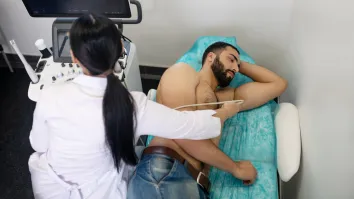
Medicine spending in Hong Kong to grow from $9.6b in 2016 to $13.4b by 2021
That is a CAGR of 6.5%.
According to BMI Research, Hong Kong 's pharmaceutical market will continue to see steady growth over the coming years as fundamentals remain favourable.
New data released from the Hospital Authority (HA) in December 2016 reported that public drug expenditure for the period ending March 2016 rose by 7% year-on-year (y-o-y) to amount to HKD5.7bn (USD736mn), up from HKD5.3bn (USD686mn).
Here's more from BMI Research:
Notably, drug spending from the special administrative region's Samaritan Fund - establis hed to finance the health expenditure of low-income people - rose by a significant 12% y-o-y to amount to HKD26 9mn (USD34mn). In aggregate, public funding of pharmaceuticals in Hong Kong rose by 7% y-o-y to amount to HKD5.9bn (USD770mn) for the year.
This growth in pharmaceutical spending in Hong Kong falls in line with our expectations, and we will thus maintain our forecast. We project top-line medicine spending in the special administrative region to grow from HKD9.6bn (USD1.2bn) in 2016, to HKD13.4bn (USD1.7bn) by 2021 and HKD18bn (USD2.3bn) by 2026.
This is a compound annual growth rate of 6.5% in both local currency and US dollar terms. We note that there are no currency fluctuations vis -a-vis the US dollar as Hong Kong has pegged its currency against it at USD/HKD7.8 - a potential positive for US-based pharmaceutical firms amid foreign exchange headwinds.
Despite its small pharmaceutical market, we continue to view Hong Kong as attractive to innovative drug makers, given its well-developed regulatory regime and higher per-capita medicine spend at USD169 - as compared to other Asian countries such as China (USD83) or the Philippines (USD32) in 2016.



















 Advertise
Advertise






